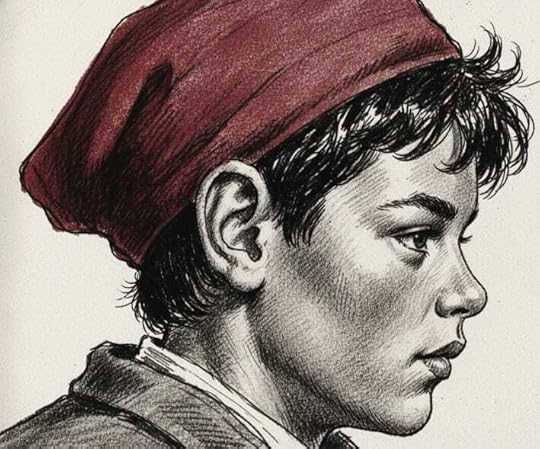Catch Him

I’ve probably read The Catcher in the Rye fifty times since first discovering it as a teenager. But when I picked it up again this fall, just weeks after sending my daughter to university, I realized I wasn’t reading it as Holden’s peer anymore. I was reading it as someone’s father.
The Holden I’d known for decades, who I identified with and debated about in college, was gone. In his place was a child waving every red flag of distress. Not a whiny teenager. Not an entitled prep-school kid. A boy in crisis.
The Shift Every Parent KnowsParenting through the last few years has been a masterclass in vigilance. My daughter’s generation has faced stressors few others have: COVID disrupting formative years, the threat of school shootings, and the algorithmic social media amplification of every insecurity. Parents now learn to scan constantly for signs of struggle in ways our own parents never had to.
Yet, reading Holden through a parent’s eyes, I realized the same stress and confusion were there in 1951—we just hadn’t learned the language, and, crucially, we didn’t look past the surface to see the warning signs.
What a Parent SeesAt sixteen, Holden’s alienation feels relatable or irritating. As a parent, it feels alarming.
In just a few days, we learn the depth of his trauma:
When his younger brother Allie dies, Holden smashes every window in the garage with his fists. “My hand still hurts me once in a while, when it rains and all,” he says, like it’s nothing.
He is on the school grounds and hears a classmate jump to his death to escape bullying. The classmate was wearing a sweater he borrowed from Holden when he died.
He fixates on the Museum of Natural History “because everything always stayed right where it was.” He wonders where the ducks go when the pond freezes. He dreams of being “the catcher in the rye,” saving children from falling not just off a cliff but into adulthood.
When his sister Phoebe asks him to name something he likes, he blurts “Allie,” then defensively adds, “I know he’s dead.”
Reading that scene now, I see a boy emotionally frozen at the point of loss, reaching for a world that ended when his brother died.
The Behaviors We MisreadCritics have long dismissed Holden as annoying, privileged, or petulant. But as a parent, I see something else entirely.
A teenager expelled from multiple schools, perhaps struggling with learning differences, attention issues, or depression.
A kid whose thoughts loop and spiral, possibly signs of anxiety or processing challenges.
A boy who can’t read social cues and finds most people “phony.” This intense fixation might be a manifestation of a neurodivergent child struggling to navigate a world of ambiguous social rules and unspoken expectations.
A teen self-medicating with alcohol and cigarettes.
Reading him as a parent, I don’t see defiance anymore. I see symptoms, and a teen trying to survive without the support he needs.
The Scene That Would End Differently TodayThen there’s Mr. Antolini.
Holden falls asleep on his teacher’s couch and wakes to find him “patting me on the goddam head.” The moment is ambiguous, was this concern or something darker? Holden doesn’t know. But he knows he feels unsafe, and he leaves.
As a parent, my reaction is simple: I’d want my child to do the same. I wouldn’t need proof of intent to validate their discomfort. If my daughter or son woke up in an adult’s home feeling unsafe, I’d tell them to trust that instinct and be grateful they did.
Yet Holden is often criticized for “overreacting.” That says less about him and more about us—our discomfort acknowledging vulnerability in boys. We still expect them to justify fear before we take it seriously.
The Parent Holden NeededWhen I reread Catcher as a parent, I saw what Holden needed:
Compassion to sit with his overwhelming grief.
Evaluation and support for learning differences.
Professional mental health support for depression and anxiety.
Adults who possessed the wisdom to look past the sarcasm to the scared kid underneath.
The Timeless QuestionWhat keeps The Catcher in the Rye relevant isn’t just Salinger’s prose; it’s the peril of adolescence itself. Sending my daughter to college reminded me how fragile that passage can be, and how fiercely we try to protect our children from falling.
Reading the book now, I see the same Holden reflected in so many teens today: kids teetering on the edge, hoping someone, anyone, will catch them.



